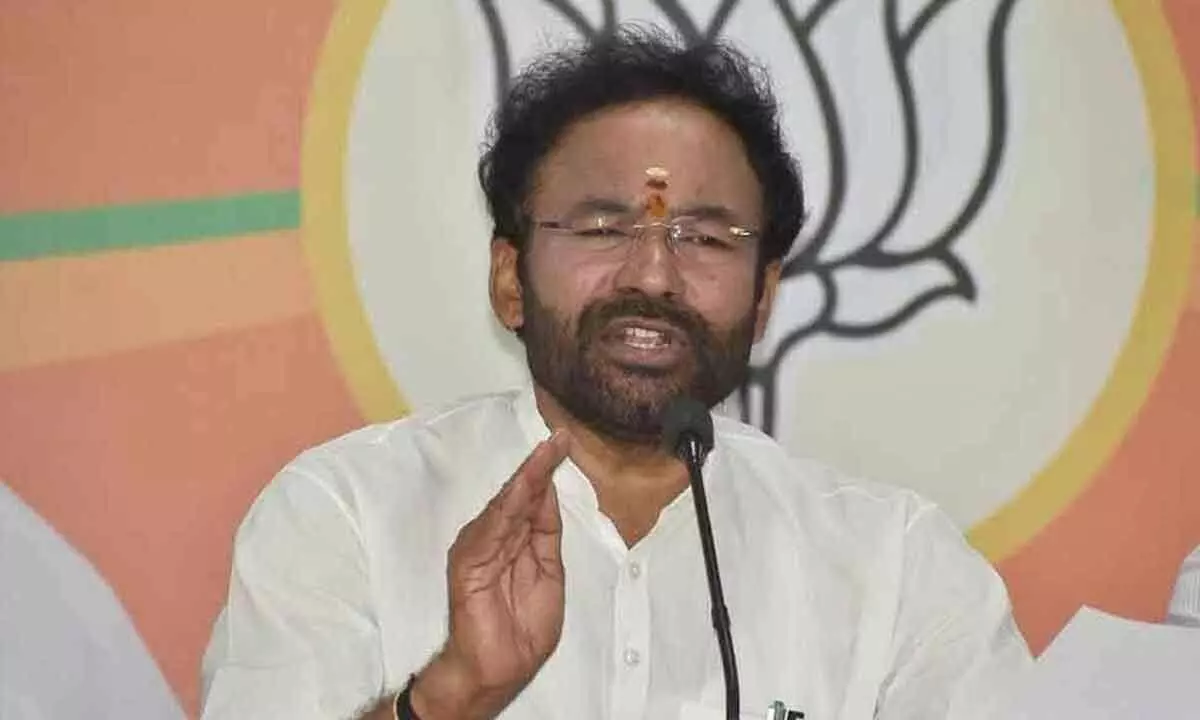Hyderabad: Kishan bats for sustainable tourism at UNWTO’s HELP meet

G Kishan Reddy(File Photo)
Highlights India’s efforts for eco-friendly tourism
Hyderabad: Union Minister for Culture and Tourism, G Kishan Reddy said India’s priorities for G20 are in line with the theme of ‘Vasudhaiva Kutumbakam’, which means, ‘One Earth-One Family-One Future’.
Addressing a High-Level Political Forum (HLPF) meeting organised, on the theme ‘Economic, Social, and Environmental Sustainability In Tourism’ under the aegis of the United National World Tourism Organisation (UNWTO) in New York late on Friday night, he listed out India’s Priorities for G-20, including, ‘Accelerated inclusive and resilient growth;
Accelerating progress on the Sustainable Development Goals (SDGs); Technological transformation and digital public infrastructure; Multilateral institutions for the 21st century and three Fs – food, fuel and fertilizers; and Women-led development’.
Exhorting on how tourism could contribute to accelerating progress towards the SDGs envisioned in the Goa Roadmap at the UNWTO, he said, the vision of India’s G20 Presidency is to support the transformation of tourism towards a more sustainable,
Resilient and inclusive future for all. As part of the ‘GOA Roadmap for Tourism’ as a vehicle for achieving sustainable development goals stresses the SDGs in terms of promoting “Decent work and economic growth, industry, innovation, and infrastructure, sustainable cities and communities, responsible consumption and production; and partnerships for the goals. The Union Minister has also elaborated on “Travel for LiFE in line with the Mission Lifestyle for Environment (LiFE) movement.”
On SDG advancement, Kishan Reddy highlighted the G-20 Tourism Working Group Priorities, of “Green Tourism, Digitilisation, Skills, MSME, and Destination Management. That apart, the country’s National Tourism policy recognizes sustainability as a principle that applies across the tourism value chain of tourist activities, operations, projects etc.
To this end, India’s National Strategy for Sustainable Tourism (NSST) is based on seven pillars of environmental, economic and promotion of socio-cultural sustainability, and protection of biodiversity, certification of sustainable tourism, sensitization of responsible travel through Travel for LiFE, capacity building through skill development, global tourism plastics initiative and responsible traveller campaign through YUVA Tourism Clubs.
Dwelling on how are India’s growth aspirations being balanced with the threat of Climate Change, Kishan Reddy noted that India is the world’s third-largest producer of renewable energy, and recalled various steps the country taking several initiatives in line with its expressed intention at COP 26 and its efforts to address the challenge of climate change by presenting to the world five nectar elements (Panchamrit) of its climate action, targeting net zero emissions by 2070.
On the climate change and sustainability front, he noted that India’s historical cumulative emissions and per capita emissions are very low. Despite being home to more than 17 per cent of the global population, it contributed only about 4 per cent of the global cumulative greenhouse gas emissions between 1850 and 2019.
Further, 40 per cent of India’s installed electricity capacity is from non-fossil fuel sources such as Hydro, wind and solar. As part of the Net Zero Emissions target by 2030 Indian Railways alone will reduce emissions by 60 million tonnes annually. India’s massive UJALA LED bulb campaign is reducing emissions by 40 million tonnes annually.
Besides, the country launched the National Hydrogen Mission in 2023 to make India the world’s largest hydrogen hub.















